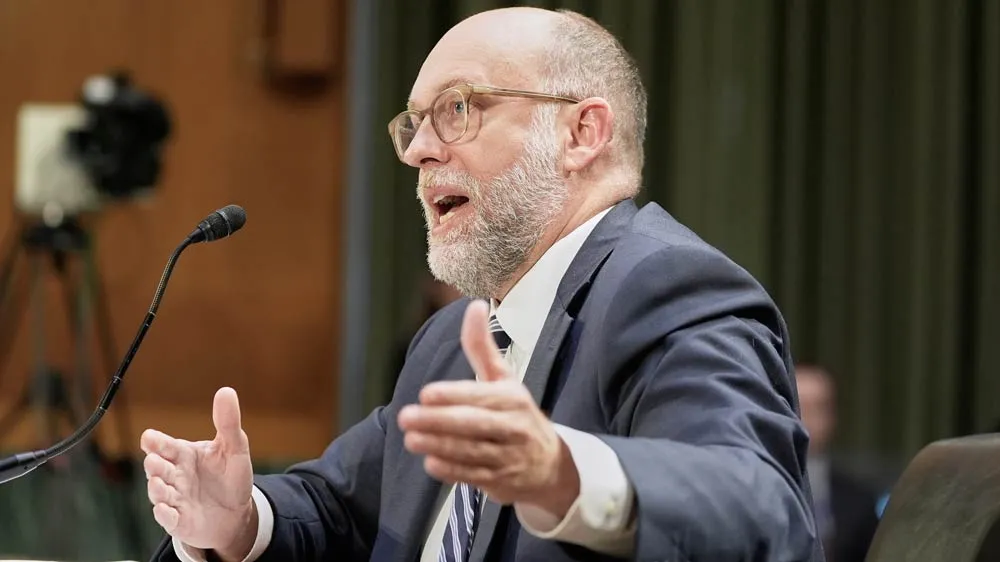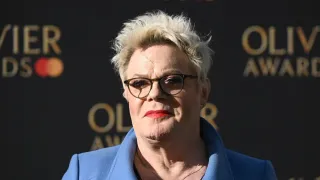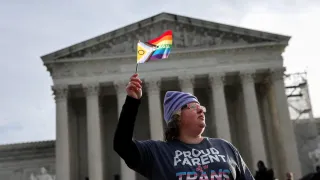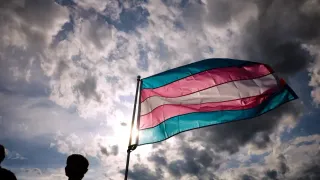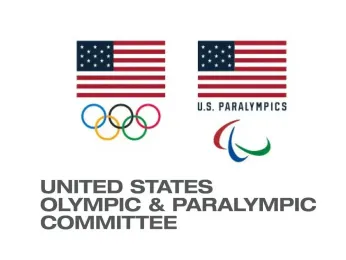
1 hour ago
US Olympic Committee bans trans female athletes
Cynthia Laird READ TIME: 3 MIN.
The U.S. Olympic and Paralympic Committee has banned trans women from competing in women’s Olympic sports. The New York Times reported Tuesday that the change was quietly made Monday, July 21, following President Donald Trump’s signing an executive order barring trans women and girls from playing on female sports teams.
The Times reported, “The new policy, expressed in a short, vaguely worded paragraph, is tucked under the category of ‘USOPC Athlete Safety Policy’ on the site, and does not include details of how the ban will work. Nor does the new policy include the word ‘transgender’ or the title of Mr. Trump’s order, ‘Keeping Men Out of Women’s Sports,’” formally known as Executive Order 14201.
The paragraph states simply the U.S. Olympic and Paralympic Committee will “continue to collaborate with various stakeholders with oversight responsibilities, e.g., IOC (International Olympic Committee), IPC (International Paralympic Committee), NGBs (National Governing Bodies), to ensure that women have a fair and safe competition environment consistent with Executive Order 14201.”
The 2028 Olympic and Paralympic games will be held in Los Angeles, with some events in other locations.
LA Mayor Karen Bass did not immediately respond to a message seeking comment.
Reaction from LGBTQ-supportive groups was critical.
“The world is watching with alarm at the loss of freedom and opportunity in our country, especially as the United States is expected to host future Olympic events,” stated Fatima Goss Graves, president and CEO of the National Women’s Law Center. “The Committee will learn – as so many other institutions have – that there is no benefit in appeasing the endless, shifting, and petulant demands coming out of the White House.
“By giving into the political demands, the USOPC is sacrificing the needs and safety of its own athletes,” Graves added. “The vagueness of the Committee's policy will leave athletes unprotected from humiliating sex-testing practices. Athletes will now be subject to intrusive questioning and demands for traumatizing physical exams as they prove they are women enough to play. The USOPC should devote its energy to the real and serious disparities harming women athletes: fewer chances to participate across all sports compared to boys and men; worse facilities, coaching, and equipment placing girls and women at greater risk of injury; and endemic sex harassment and assault perpetrated against women athletes.”
The USOPC’s new policy means that the national governing bodies of sports federations in the United States –which oversee sporting events for all ages, from youth to masters’ competitions – now must follow the USOPC’s lead, according to several chief executives of sports within the Olympic movement, according to the Times’ report.
At the 2024 Paris Games, there were no trans athletes who competed.
There was some controversy in boxing at the Paris Games, which involved Algerian gold medalist boxer Imane Khelif, whose eligibility to compete in the women's boxing events drew international attention. Khelif, who is not transgender, was the subject of vicious social media posts, implying that she was. The International Olympic Committee condemned the International Boxing Association’s disqualification of Khelif and suspended the IBA as the sport’s Olympic governing body.
According to USA Today, since the 2004 Athens Games, “transgender athletes were allowed to compete with minimal, if any, fuss. During that time, in fact, there was only one – one! – openly transgender woman who competed, weightlifter Laurel Hubbard in Tokyo.”
